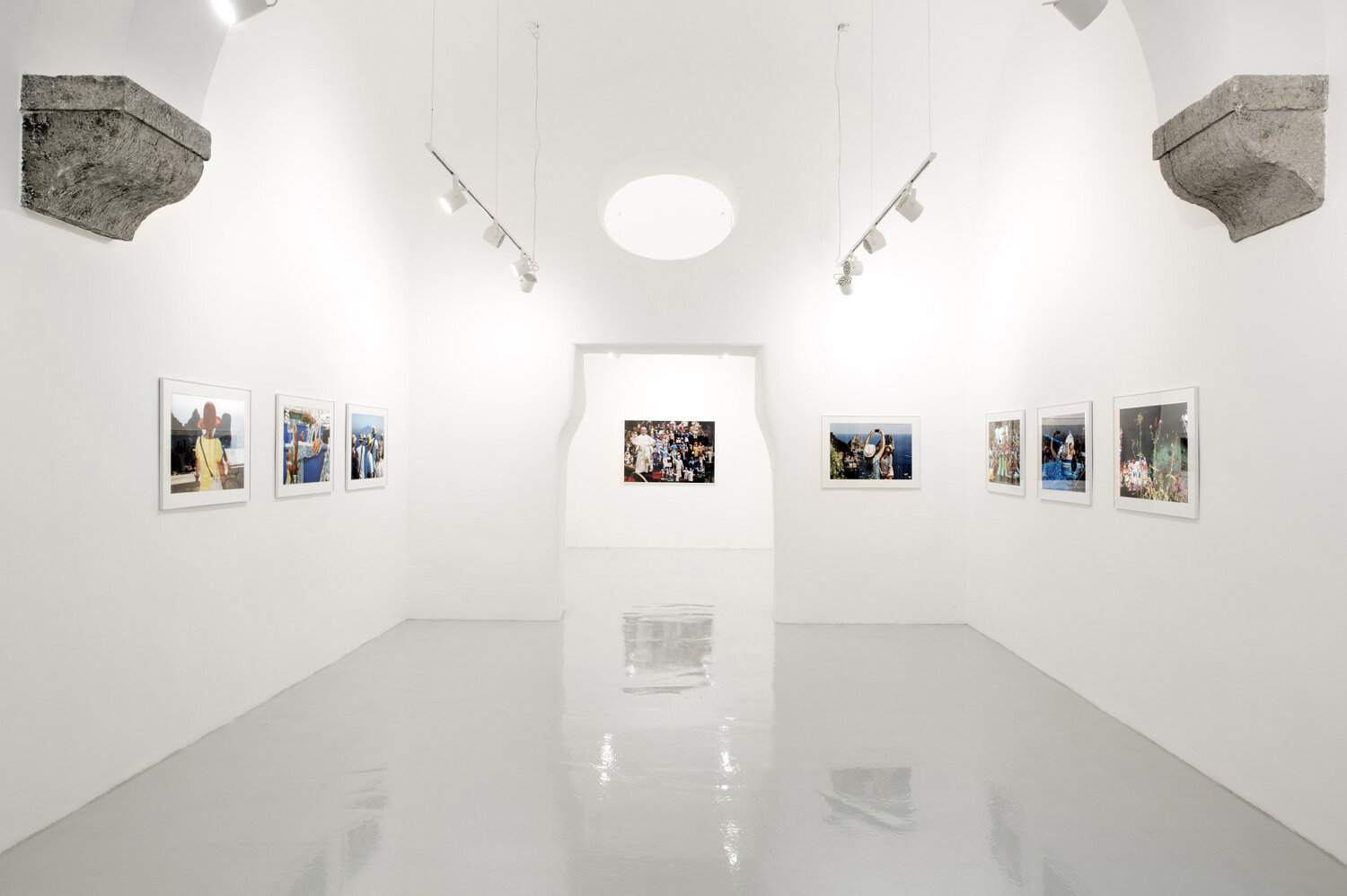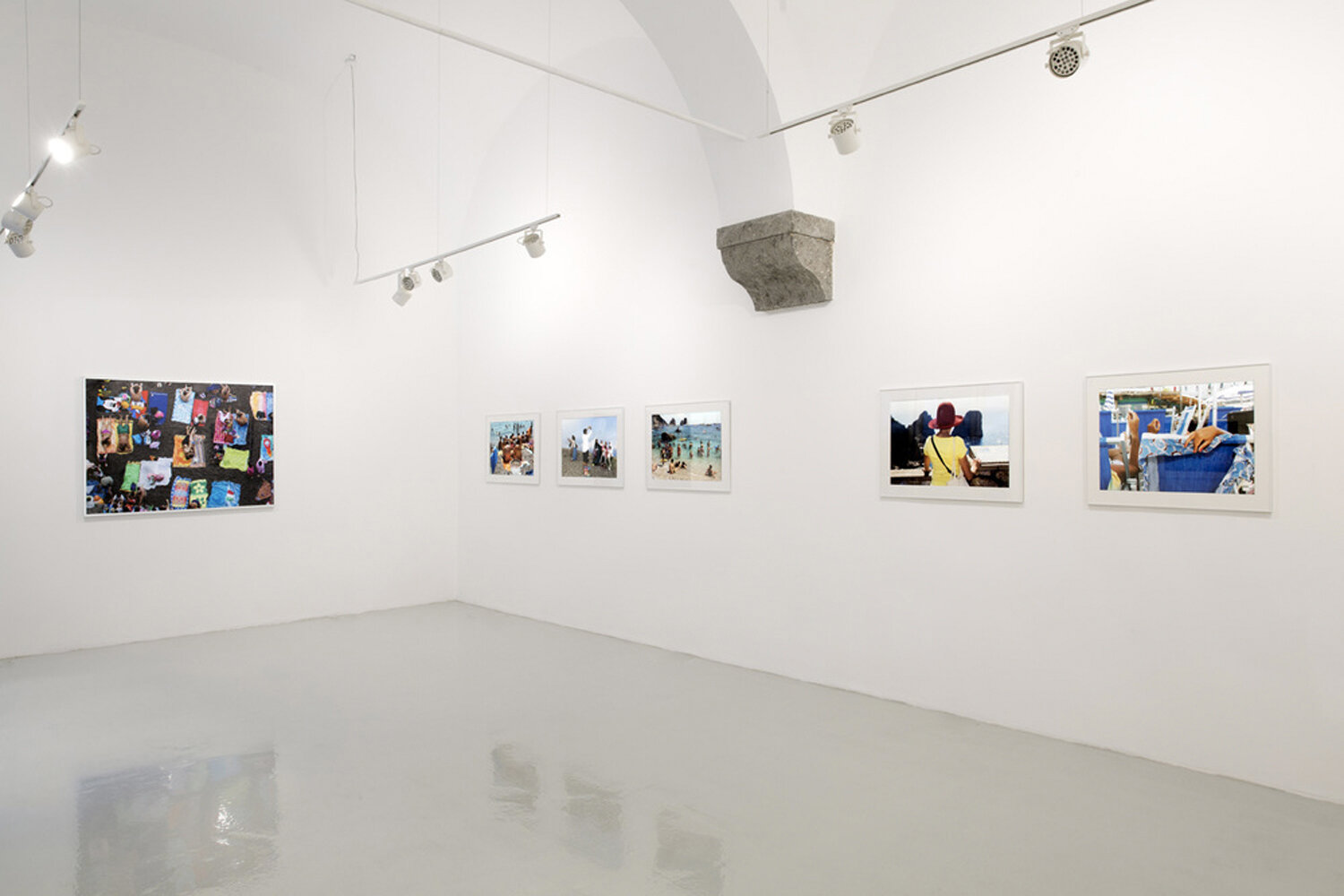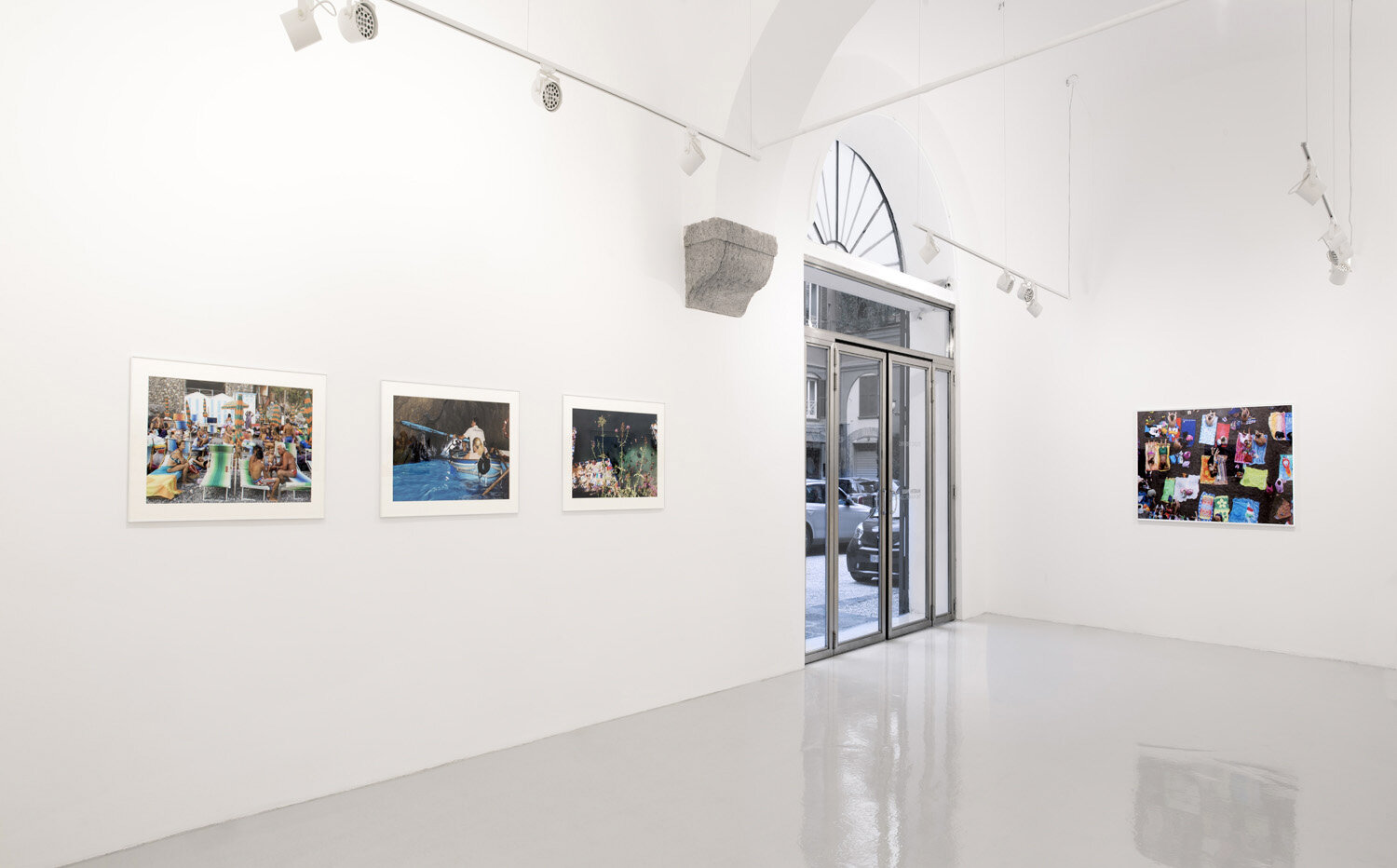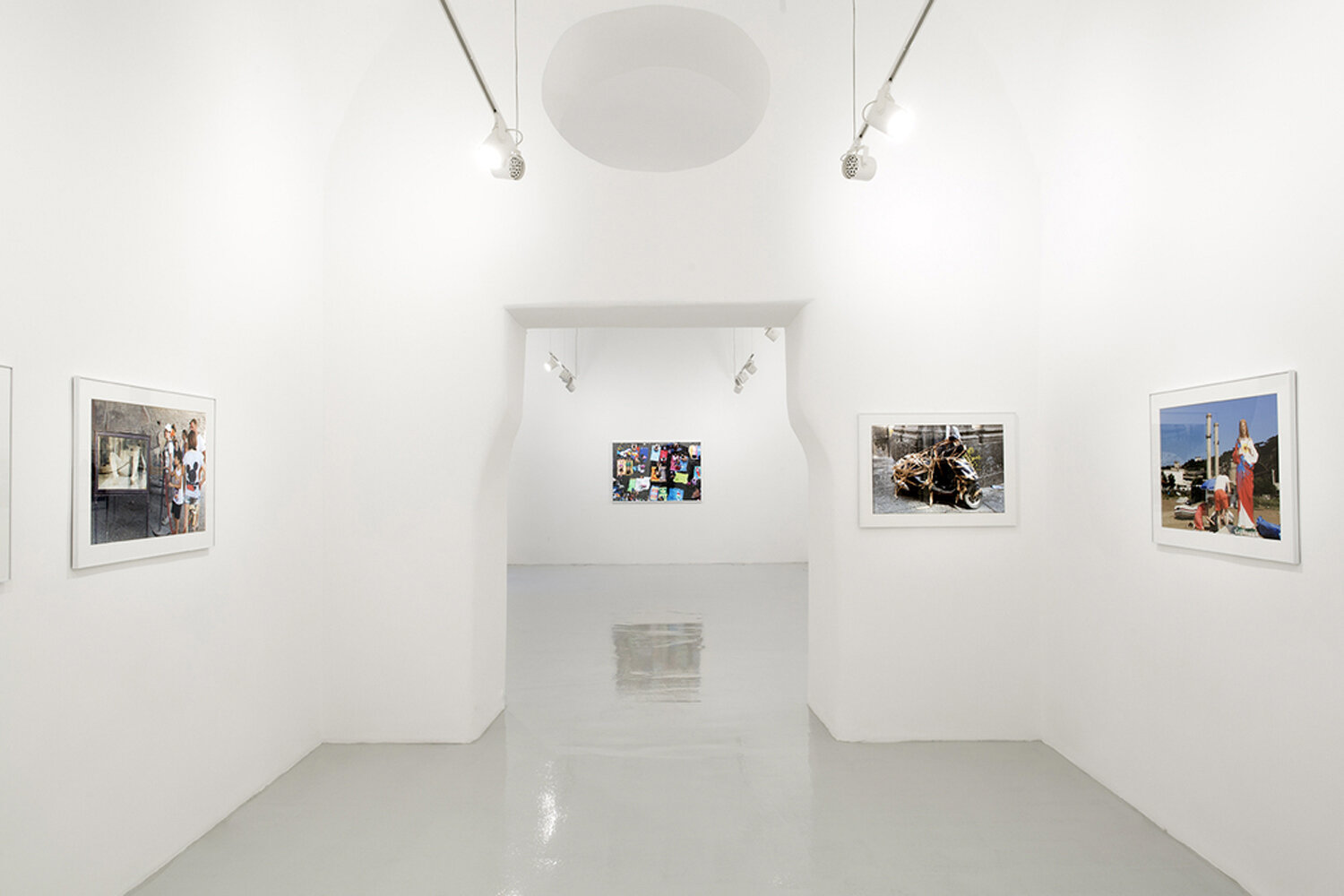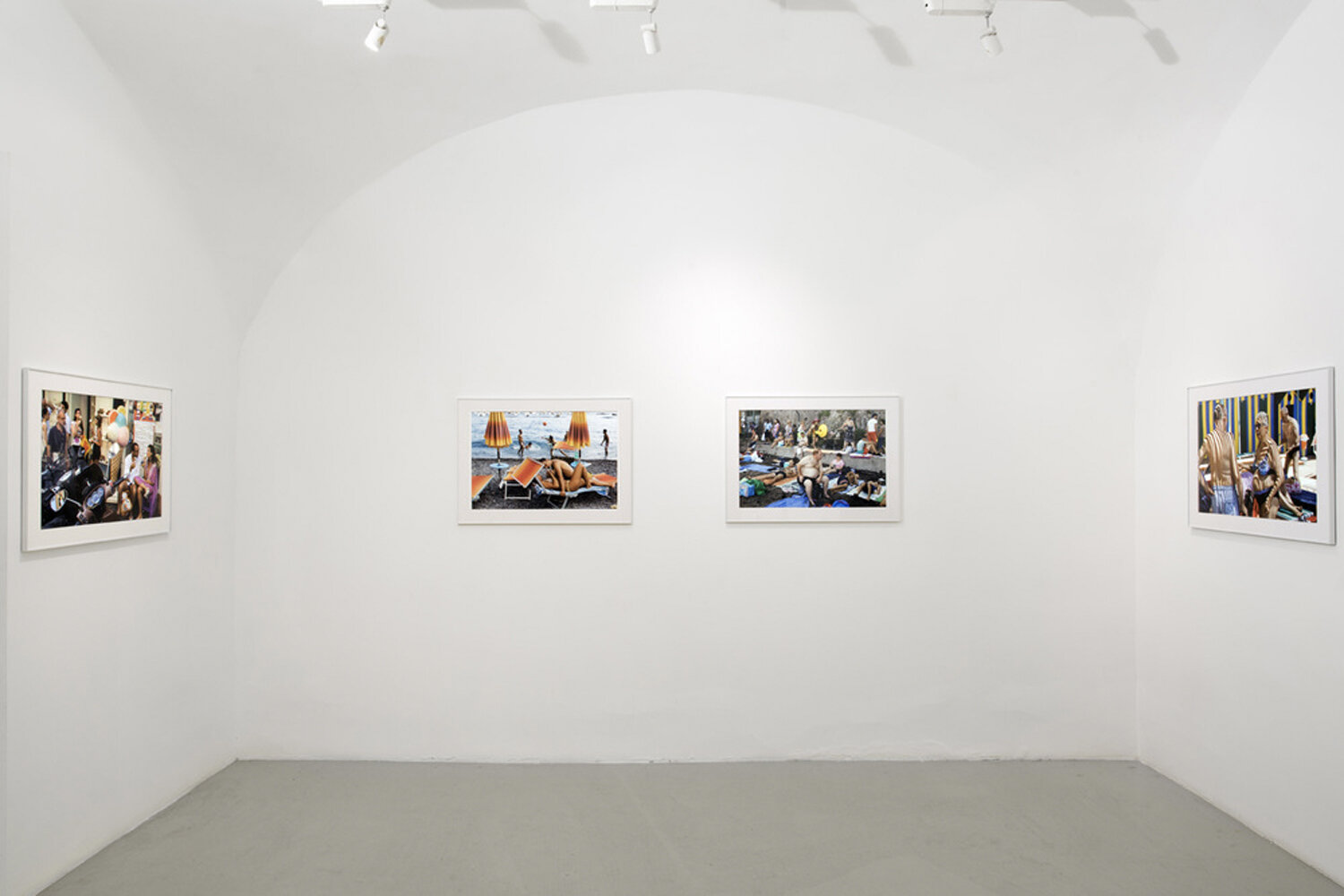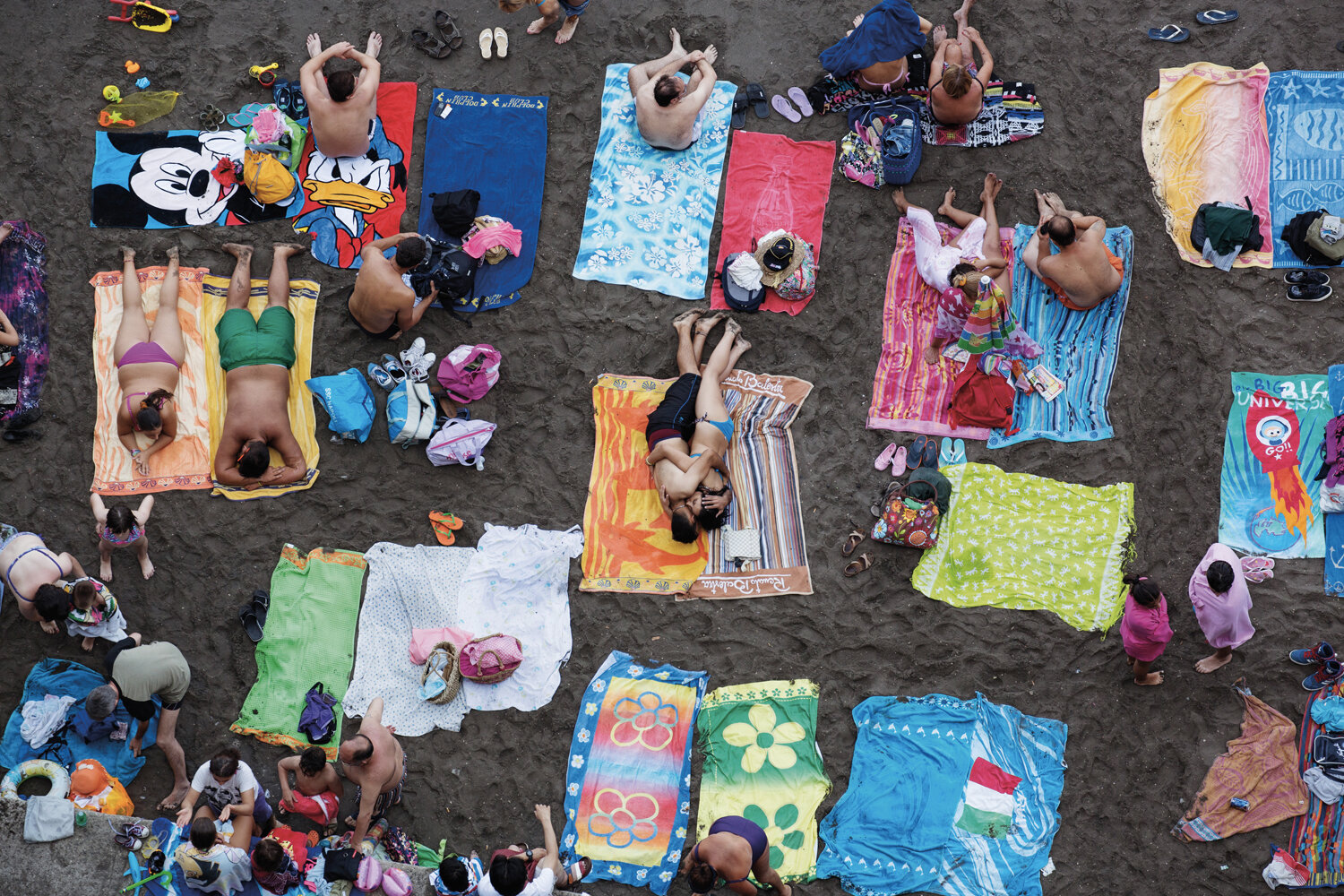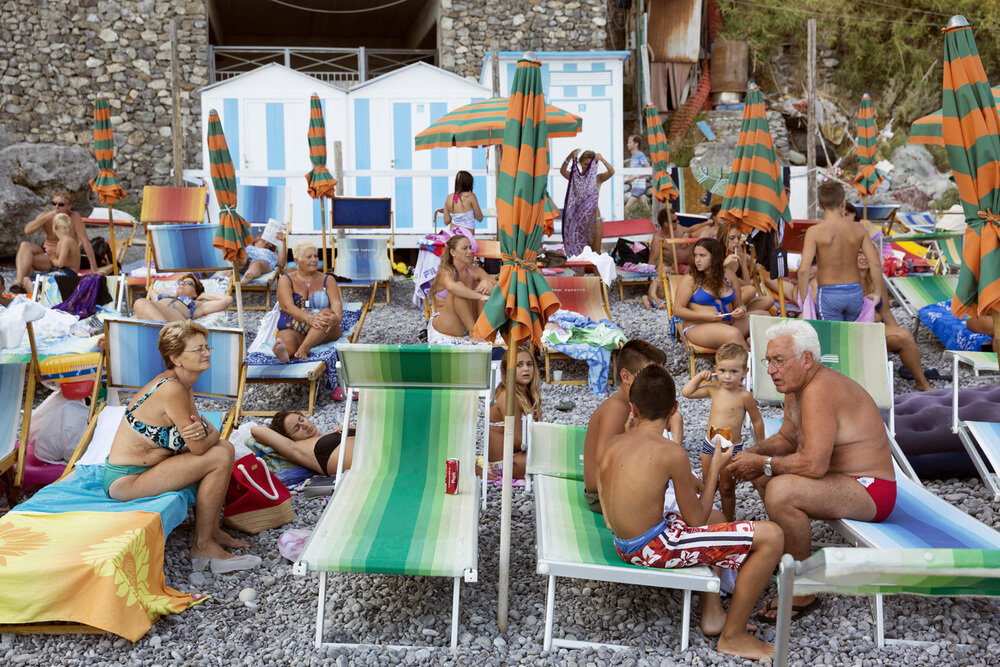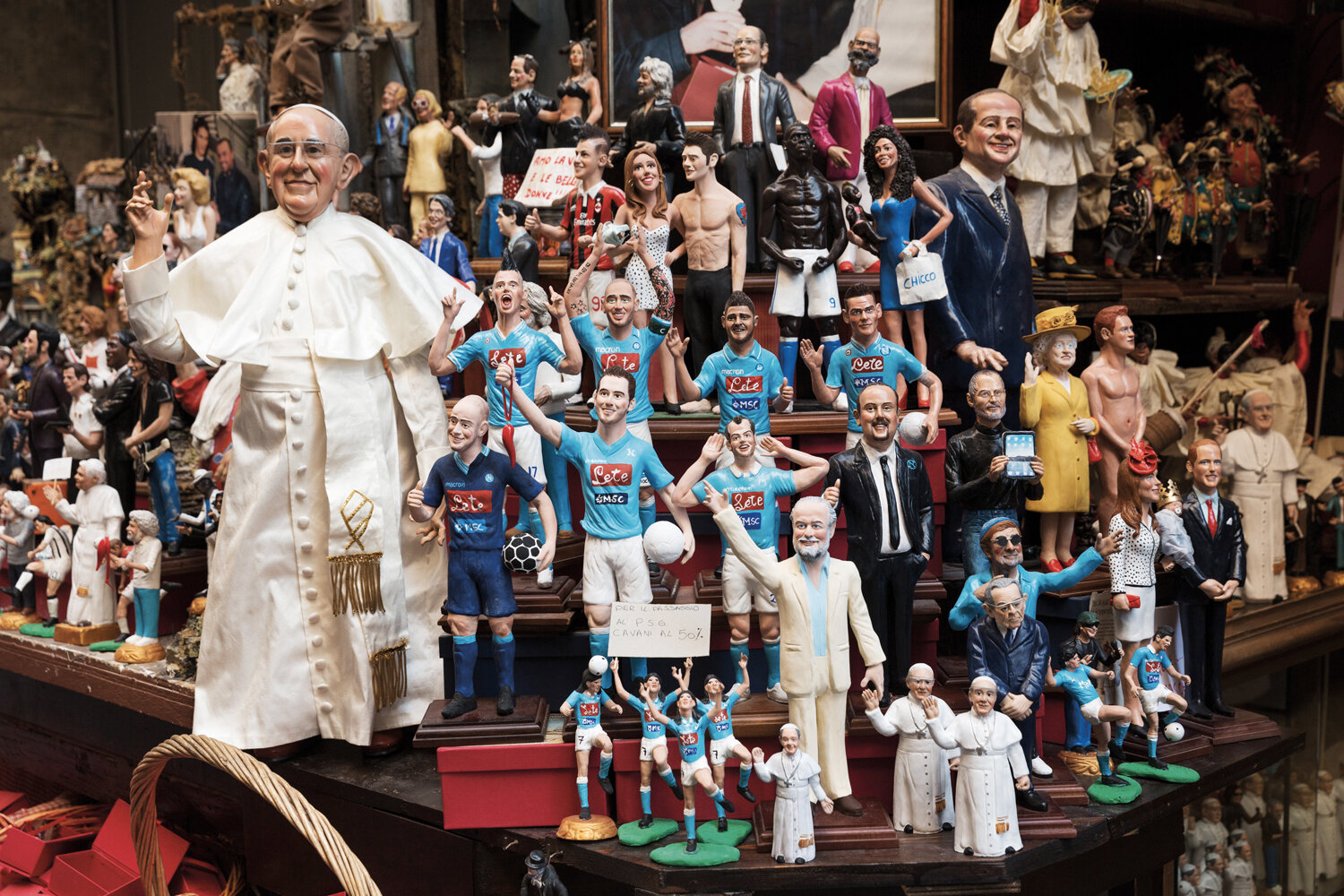Martin Parr
The Amalfi Coast
November 27, 2014 — February 28, 2015
With the discovery of the ruins of Pompeii and Herculaneum, the ancient city of Naples, crossroads of the Mediterranean, attracted the attention of Grand Tour travellers who, began to visit the city. The sharp contrasts of the city still continue to inspire contemporary artists.
In the wake of this tradition and having promoted site-specific projects since 1974, Studio Trisorio commissioned Martin Parr to develop a project on this celebrated city and its bay. Thus over a two-year period the artist focused his attention on some of the area’s most famous tourist attractions including Pompeii, Capri, Amalfi and Sorrento.
In one of Europe’s most densely populated regions, the seaside resorts are particularly crowded during the month of August and at the week-ends, by local residents with their anthropological rituals of gathering together – ironically documented by Parr’s attentive, amused gaze – but never mingling with the foreigners who are in search of icons of luxury and celebrity (Capri) and the picturesque (the Sorrento Peninsula, the islands of Ischia and Procida and the Amalfi Coast).
If, indeed, it is true that «a day at the beach is the same the world over» (Martin Parr), the local variants of the gestures and rituals imposed by globalization, the way in which people present themselves or impose themselves on others, or the manner in which couples have time together in absolute promiscuity and a total lack of privacy, reveal the innumerable nuances of a completely Neapolitan manner of living to the artist: all together in continuous communication via looks, noises and words adapted to the limited conditions of space imposed by the impervious cliffs.
Since the Nineties, Martin Parr has explored the concept of consumerism intended as a paradoxical ideology of contemporary society. With his dry, scathing humour, he describes the most common habits, tastes and stereotypes and places emphasis on the more grotesque aspects of some social behaviour. Above all, his work is a representation of reality in a world where the boundary between reality and its stereotypes is becoming progressively blurred.

